

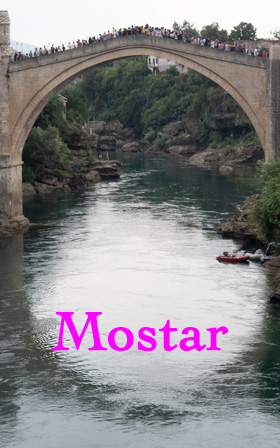
|
I arrived in Mostar, Bosnia & Herzegovina by bus from Split, Croatia. I think the route to Mostar was scenic. At least it appeared to be when I was actually awake. On that day I felt ill. I am not sure of the cause. It could have been a touch of sun from visiting Krka Waterfalls and not taking precautions to protect myself or it could have been the meal of truffles I had later that evening. I am willing to give truffles another try. Whatever the reason, for most of the journey I was asleep. |
In Mostar there are a number of small shops selling art on copper fashioned into household implements.
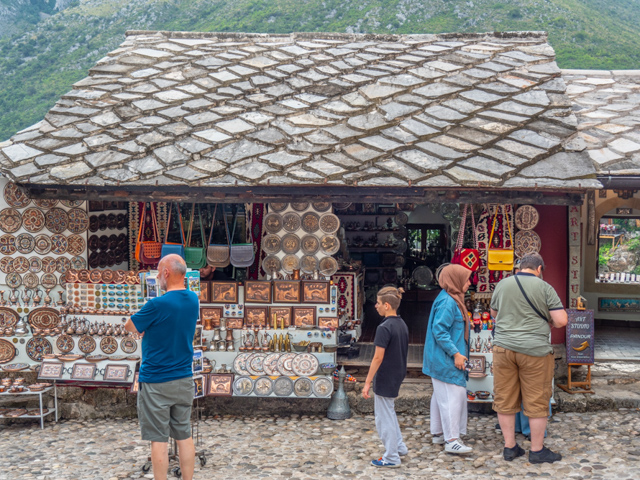
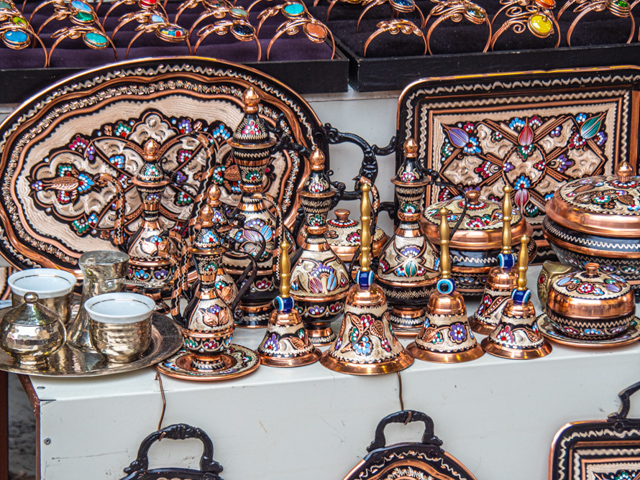
Many dwellings are sited on the cliff faces of the Neretva river.
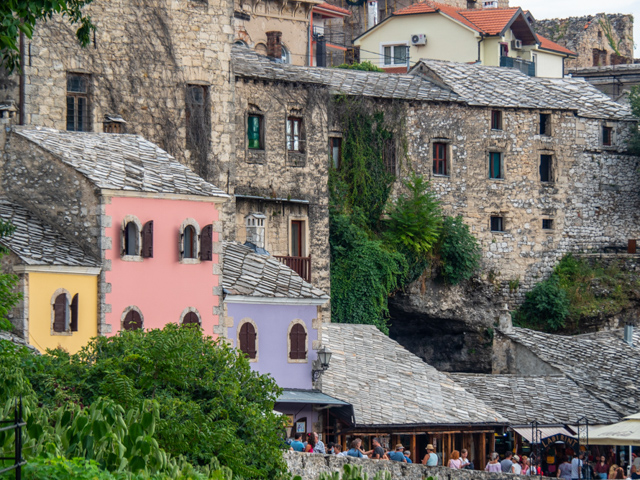
The Mostar Bridge with it semi-circular arch is 4 metres wide, and 30 metres long. Its height, depending on river levels, is approximately 24 meters over the Neretva river. Attached to two limestone cliff walls on either side, in earlier times it was protected by guards in two towers, the Halebija and Tara towers, at each bridge end.
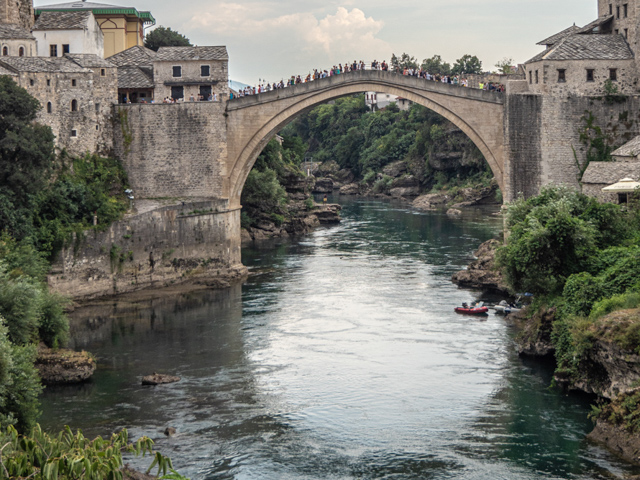
Construction of the original bridge commenced in 1557 and was completed in 1566-67. Destroyed in the Bosnian war on November 9th, 1993. Reconstruction started in 2001 and was completed in 2004. It was rebuilt using Ottoman materials and techniques. Tenelia, fine-grained limestone from local quarries was used in much of the reconstruction. Stones retrived from the river were used if possible. Generally they couldn't be used.
It is traditional for young men to leap into the Neretva river. In mid-summer there is an annual diving competition. The bridge height coupled with the coldness of the river makes diving a risky event requiring training. Tourists can also dive after appropriate training.
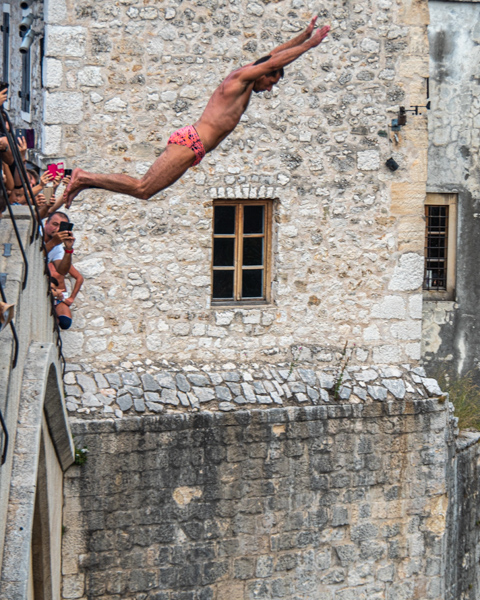
When I was there the divers were collecting donations from onlookers. I don't know how much they collected before taking the leap.
Built in 1618-1619 on the banks of the Neretva river, Koski Mehmed Pasha Mosque is another example of Ottoman architecture in Mostar.
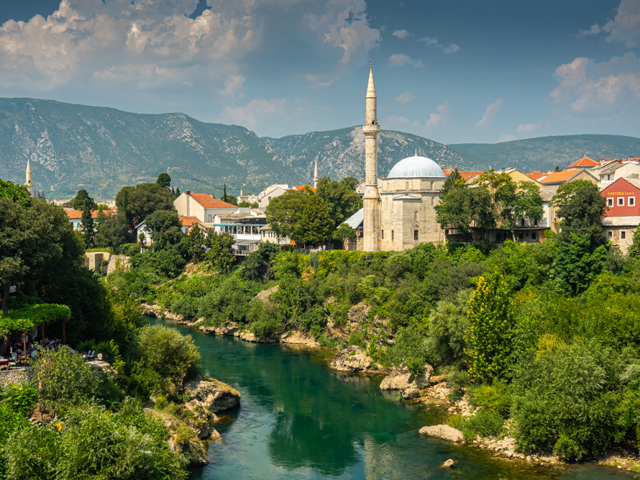
The mihrab in a mosque is a niche in the wall which indicates the direction of Mecca. This one is more elaborately decorated than many I have seen.
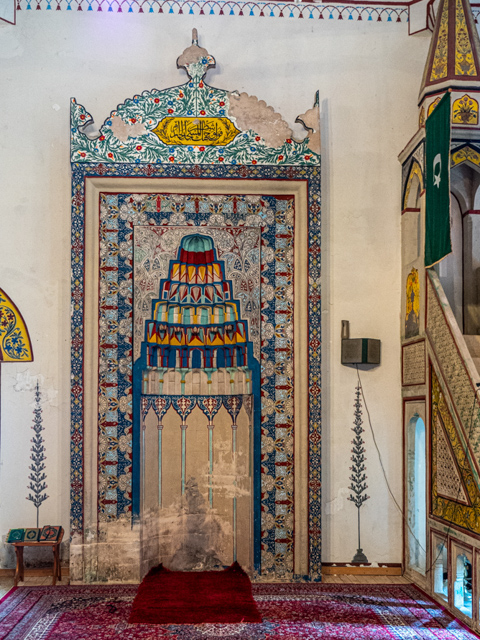
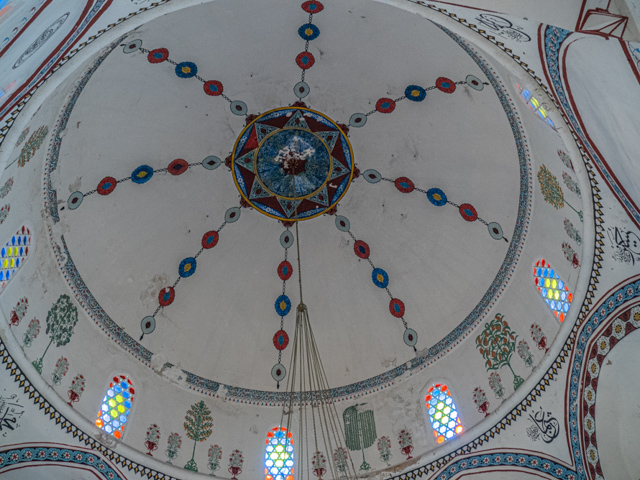
Badly damaged in the war (1992 - 95) it was restored between 1996 - 2001.
The Bosnaseum is a museum, near the Koski Mehmed Pasha Mosque, which displays Bosnian art and culture.
Modern oil paintings by Ibrahim Novalic.
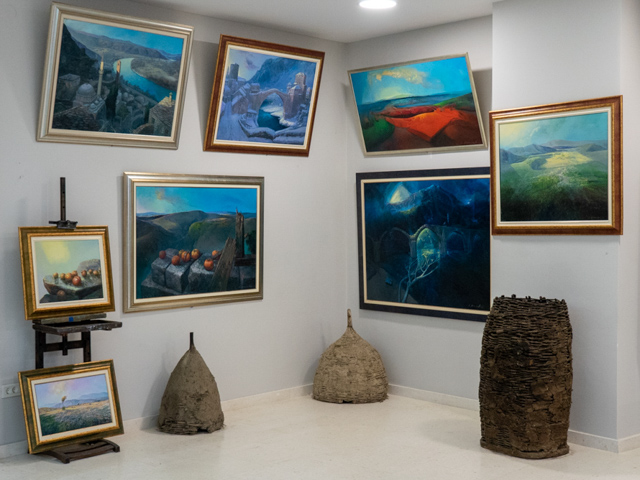
In another section of the museum models of village rooms from different periods of Mostar's history are displayed.
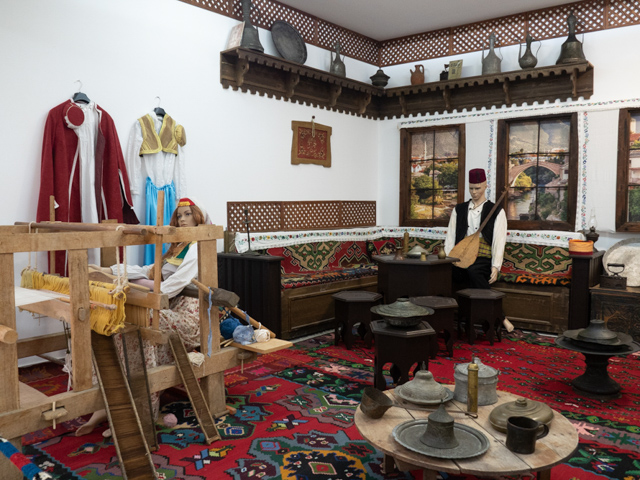
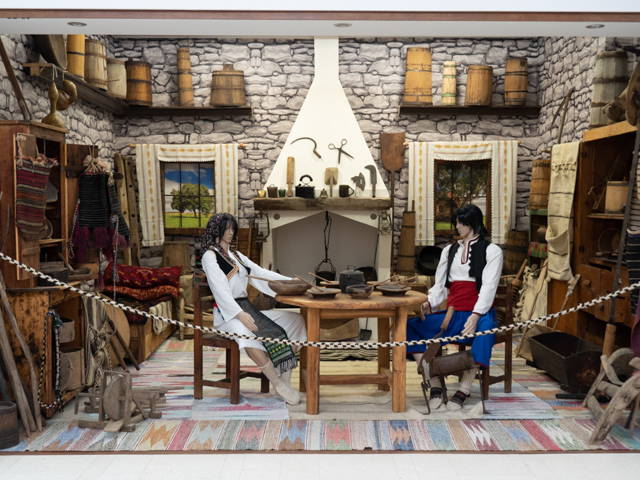
Other exhibits display scenes from the Bosnian War fought in the 1990s. These consists of real objects such as sand bags, guns, chains, mannequins representing soldiers and rubble which are backed by a large photographs of Mostar's streets taken during the war.
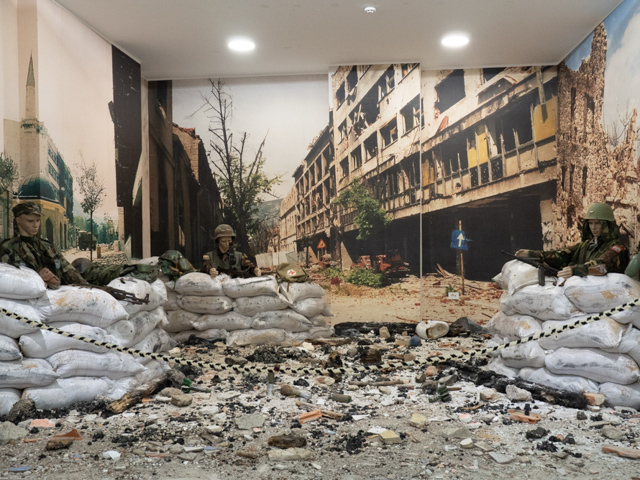
What is there to do on Mostar nights? One of the things you can do, and I did do was to take a walk to the Mostar Bridge and photograph it.
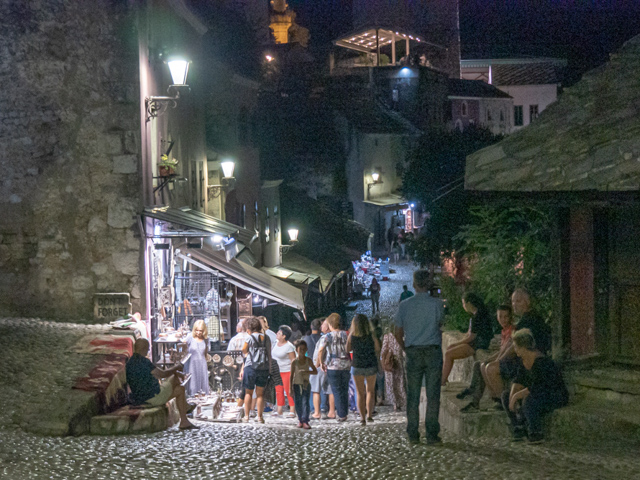
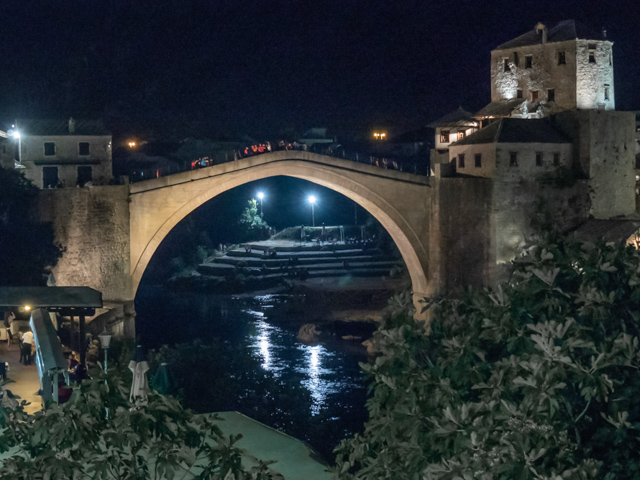
Mostar was an interesting and attractive city to visit. However, I will leave diving into the Neretva river to others more skilled than me.